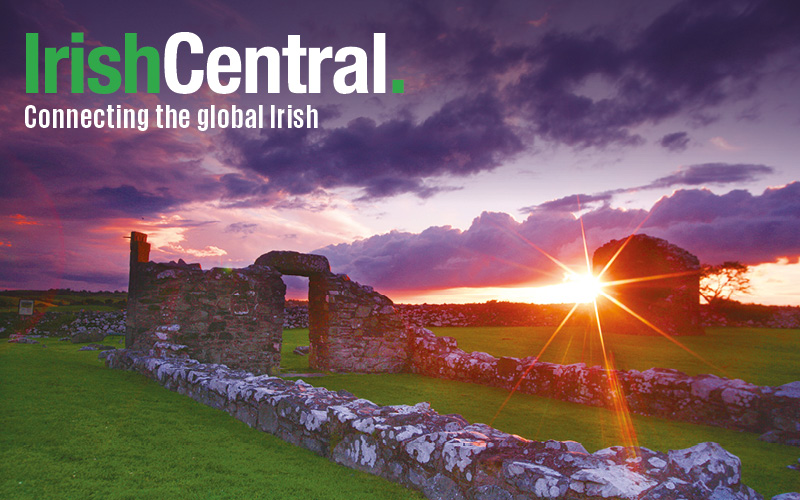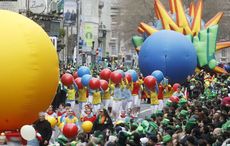In commemoration of September 11’s first recorded victim, Franciscan priest Father Mychal Judge, St. Bonaventure University (SBU) in upstate New York is in the first phase of establishing the Father Mychal Judge Center for Irish Exchange and Understanding.
A St. Bonaventure graduate and Franciscan priest, Judge served as chaplain to the Fire Department of New York at Firehouse Engine 1 and Ladder 24 in Midtown Manhattan. The 68-year-old lost his life while administering last rites to victims of the terrorist attacks on September 11 and was the first recorded victim of the atrocity.
Born in Brooklyn on May 11, 1933 to two Irish Catholic immigrants from Co. Leitrim, Robert Emmett Judge answered his calling to the Franciscan vocation aged 16. He then entered St. Joseph’s Seraphic Seminary in Callicoon, New York where he was received into the Franciscan Order on August 12, 1954.
In 1957, he graduated from St. Bonaventure University. He was ordained into the priesthood on February 25, 1961. He would later change his name to Mychal Judge.
In his memory SBU has created a special program of study which reflects Judge’s ethos and devotion to helping others. Founded in 2009, the center offers students the opportunity to explore globalization issues which face tomorrow’s leaders, within the context of Ireland. It is partnered with several Irish universities, nonprofit organizations, Irish Franciscans and both political and community leaders.
“We are continuing to develop new partnerships and programming to expand the number of students we serve annually. We also hope to draw more students from Ireland to St. Bonaventure for short- and long-term experiences,” Lawrence Sorokes, the founding director of the Judge Center told the Irish Voice.
“In addition to honoring the memory of Father Mychal, the project also honors the university's Irish roots. Our founding benefactor, Nicholas Devereux, hailed from Wexford,” he added.
Proud of his Irish heritage, Judge made several trips to Ireland throughout his lifetime. Some of his most notable trips were with his close friend Steven McDonald, a New York police detective who was shot and paralyzed in 1986. The friends traveled to Northern Ireland several times on peacemaking and forgiveness missions during The Troubles.
Sorokes, who has spent time in Northern Ireland, says it is clear to see the legacy that Judge left behind.
“Many of the community activists and peace-builders that we have met remember meeting Father Mychal and his friend Steven McDonald. Some recall marching with them in peace demonstrations,” he recalls.
“Additionally, the Franciscans have a strong reputation in Ireland for being supportive players in the preservation of Irish culture and history,” Sorokes added.
Students at the Judge Center are exposed to an international experience when they visit Ireland which enables them to strengthen their professional and international skills.
Akin to Judge’s mission, the center focuses on the role that reflection and reconciliation plays in developing a peaceful future and surpassing a history of conflict.
The center has also established links with the Corrymeela Community, a retreat center involved in reconciliation efforts in Northern Ireland.
In June 2010, students from SBU's Clare 401 University Forum course traveled to Ireland where they visited Belfast, Dublin, Galway, Mayo, Donegal, Derry, Ballycastle, and Larne. The group also met with several experts in the reconciliation process, as well as Franciscan Friars, university professors and political leaders.
Friends and colleagues of the Franciscan priest recall Judge’s fondness for his ancestral home. A former Franciscan friar and close friend of Judge, Brian Carroll recalled a trip to Ireland.
“Mychal was very proud of being Irish and he knew I had Irish in me so he insisted I take a trip to Ireland,” he told the Irish Voice.
“I was just looking at photos the other day or our trip. We went to a number of rectories and monasteries in Ireland,” he said.
Carroll spoke about Judge’s appreciation for his Irish heritage.
“He loved being Irish and he loved being able to get his passport. As soon as he realized that was available to him, he got Irish citizenship.”
“He saw the human in it, he saw the suffering in it and saw the resilience of the people who had been through hell and back.”




Comments